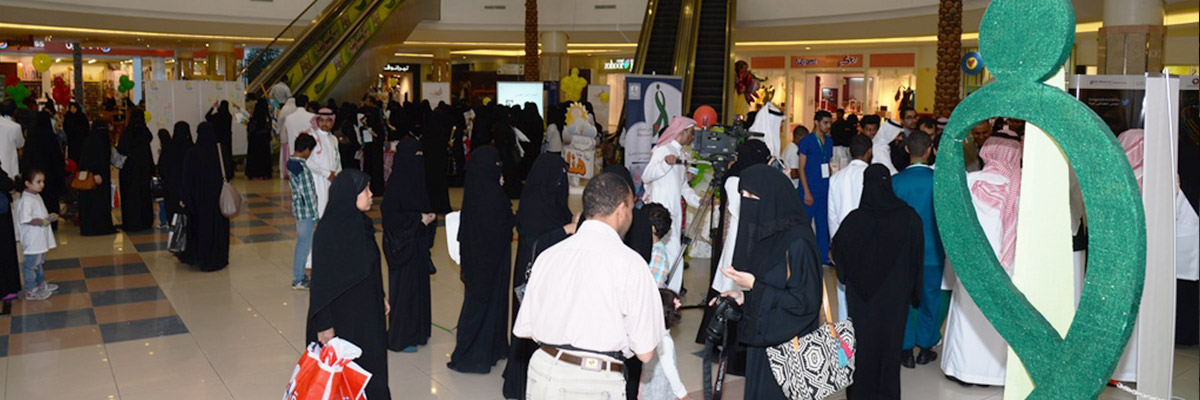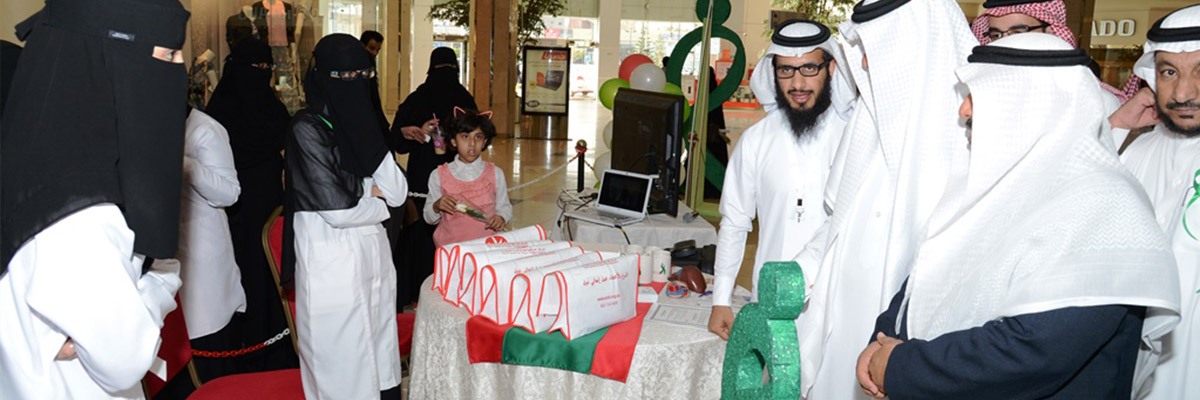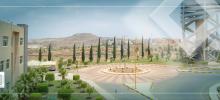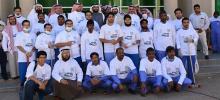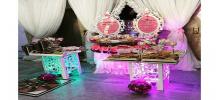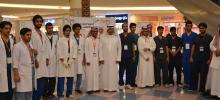“My organs are a life for others” Campaign attracts 330 Donors
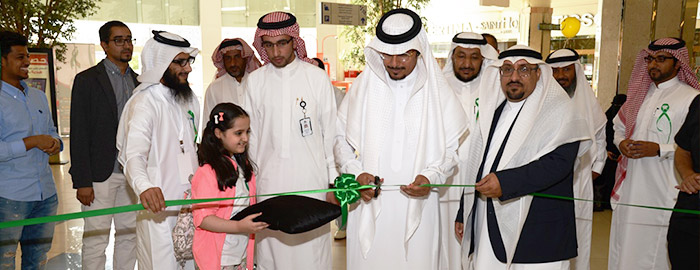
The Vice-President of Educational Affairs at King Khalid University, Dr. Mohammed Al-Hassoun, inaugurated the events of an organ donation campaign organized by the students of the Faculty of Medicine at the University in cooperation with the Saudi Center for Organ Transplantation, under the slogan “My organs are a life for others”. The campaign was held over three days at Asir Central Hospital, Asir Mall, and Asdaf Mall.
The activities of the campaign were witnessed by the Dean of the Faculty of Medicine at King Khalid University, Dr. Abdullah Asiri, Dr. Haifa Qathami, Head of the Saudi Center for Organ Transplantation, Mr. Saleh Al-Shehri, Dr. Abdul Aziz Al Omari, and Dr. Mohammed Zayed, in addition to a number of specialists and doctors. The campaign witnessed great, noticeable interaction with the audience, when 330 donors signed cards for organ donation, after they were briefed on the opinion of the clergy about the permissibility of the donation, as well as correcting some of the misconceptions they had.
In this regard, the Dean of the Faculty of Medicine at the University, Dr. Abdullah Asiri, explained that the university's interest in humanitarian issues is large, particularly regarding community service. He said, "Medical community participation is considered part of the message of doctors and the Faculty of Medicine, and one of the best values that can contribute socially is organ donation and transplantation."
Asiri also hinted at the need to provide awareness, and education, and to clarify to the community the importance of organ donation and the benefit that all could obtain from this humanitarian action.
Dr. Abdullah clarified that the last 10 years have witnessed a big increase in community awareness of the importance of donation. He confirmed that King Khalid University will exert every effort to adopt these humanitarian issues.
Alya Al-Qarni, campaign organizer, described the campaign as a volunteer, educational outreach to the citizens of Saudi society. It aims to correct the spreading of misunderstanding regarding organ donation. She also confirmed that the campaign obtained the approval of the Standing Committee of Iftaa (Religious Advisory Opinion).
The Chief of Administrative Affairs at the Saudi Center for Organ Transplantation, Mr. Saleh Al-Sehri, clarified that the center is an example to Gulf countries and takes care of the patients of organ failure in general. The center also leads public awareness of the importance of donating to clarify the concept of brain death. Mr. Saleh Al-Sehri said, "The community should be aware that the brain-deceased person has lost his chance at life, but has organs that can be used for other patients, such as the heart, liver, kidney, lungs, pancreas, bone, and skin".
Al-Shehri also drew attention to the figures that confirm that there are 16 thousand patients with kidney failure in the Kingdom and there are also 13 centers for kidney transplants, 3 centers for heart and liver conditions, 12 centers for cornea issues, and a center for bone-related problems.
Al-Shehri reassured those who are interested in this field that all organs are available in the Kingdom and there is a great revival in the field of organ transplantation and that all doctors carrying out organ transplants are from our homeland.
In this regard, Assistant Professor and an Anesthesiology and Intensive Care Consultant at King Abdul Aziz University in Jeddah, Dr. Haifa Qathami, confirmed that that the society lacks awareness of the importance of donation where the proportion of patients with organ failure is very high and are increasing daily compared with the low percentage of donations.
Al-Qathami confirmed that the most important goal of this campaign is to clarify the view of religion, as the majority of scientists in the Islamic world agree on the permissibility of organ donation from still-living donors or after brain death. They consider it a matter of on-going charity for the donor.
